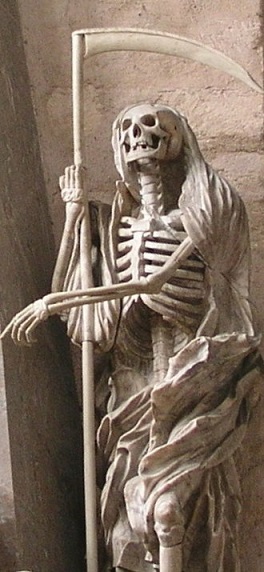The anniversary may have escaped many of us, but 2022 is the year in which the film, Soylent Green is set. The story depicts a time when human activity has so depleted natural resources, humans can no longer grow crops to sustain themselves. The living survive by eating the dead. Made in 1973, the dystopian plot seems prescient. As a species, we continue to behave as if Earth’s resources are unlimited. What’s kept us from the brink of disaster is the decline in human populations.
The Coronavirus is one reason for the decline. It has killed nearly 6 million people in the past two years. A million of those deaths were unvaccinated Americans. Birth control has also had its impact. Abortion, the most debated form of birth control, is likely to increase because cheap drugs exist that protect a woman’s right to chose and are becoming more accessible.
For example, the federal government now allows certified providers other than doctors and pharmacists to “write a prescription and have that prescription filled by a mail-order pharmacy.” (“FED Gives Its Ok,” by Carrie N. Baker, MS, Winter 2022, pgs. 8-9) An additional option to unwanted pregnancy is menstrual suppression.
Thoughts about a dying planet and population decline may seem macabre, but they have an upside. Thanks to the Doomsday Clock, we know a few seconds remain before it strikes midnight. Reminding ourselves about death as I’ve mentioned before keeps us in the moment. There’s an app for that, by the way. WeCroak. The site helps subscribers keep a dark tally on their lives, “weighing the years spent against the years that remain.” (“These Notifications Are Killing Me,” by Meghan D. Gieblyn, Wired Feb. 2022, pg. 17.)
Using death as a measuring stick against existence isn’t a wild notion. Without it, some people imagine they are immortal. That they cling to such ignorance is no fault of the poets. They’ve been reminding us of death through the ages. In the eleventh century, the Persian author, Omar Khayyam wrote this of life: Tis all a Checkerboard of Nights and Days, where Destiny with Men for Pieces plays: Hither and thither moves, mates and slays. And one by one back in the Closet lays. Ten centuries later, W. H. Auden saw our demise as the sound of distant thunder at a picnic.
Perhaps death’s presence among us gets lost in the beauty of the poets’ words. Even so, the warning is real.
Vladimir Putin is 70 years old. In my mid-eighties, I’d like to see 70 again. Nonetheless, he has lived the better part of his life. If he died tomorrow, which is possible for someone his age, no one at his funeral would say, “He died young.” So what drives a man of his years to attack Ukraine, bringing death to innocent people while he reminds us he has enough nuclear weapons to plunge the planet into a nuclear winter? Others, since World War II, have made the same threat. Most of us remember the Cuban missile crisis.
Some suggest Putin is traumatized by Russia’s loss of empire and feels entitled to territories he no longer controls. Imperialism, he imagines, still has legitimacy. Kenya’s U. N. Ambassador Martin Kimani, a citizen of a country once subjected to colonialism, assures the Russian dictator he is wrong.
If legacy is Putin’s motive, it’s a short-lived ambition. Tomorrow? Why tomorrow I may be Myself with Yesterday’s Sev’n thousand years. (“The Rubaiyat” by Omar Khayyam) To secure his place in history, he asks others to pay a high price. He asks the blood of young soldiers on either side of the Ukrainian conflict. That he demands their sacrifice while he remains secure in a golden palace will indeed be remembered. We are the Dead. Short days ago We lived, felt dawn, saw sunset glow Loved and were loved, and now we lie, In Flanders fields. (“In Flanders Field” by John McCrae.)
When ego turns a blind eye to time, the Will triumphs. It’s a poor substitute for more noble values like empathy and compassion. What fools these mortals be, William Shakespeare once wrote. (Midsummer Night’s Dream, III, ii, 115) The greatest fool of all is the one who fails to read the message in each sunset. The moving finger writes; and, having writ, moves on; nor all thy piety nor with shall lure it back to cancel half a line, nor all thy tears wash out a word of it. (The Rubaiyat by Omar Khayyam)
Poetry combines truth with beauty and beauty with truth–wisdom that transcends time and rivals that of any philosopher or mathematician. Does Putin read poetry? I suspect he doesn’t…. Pity.

